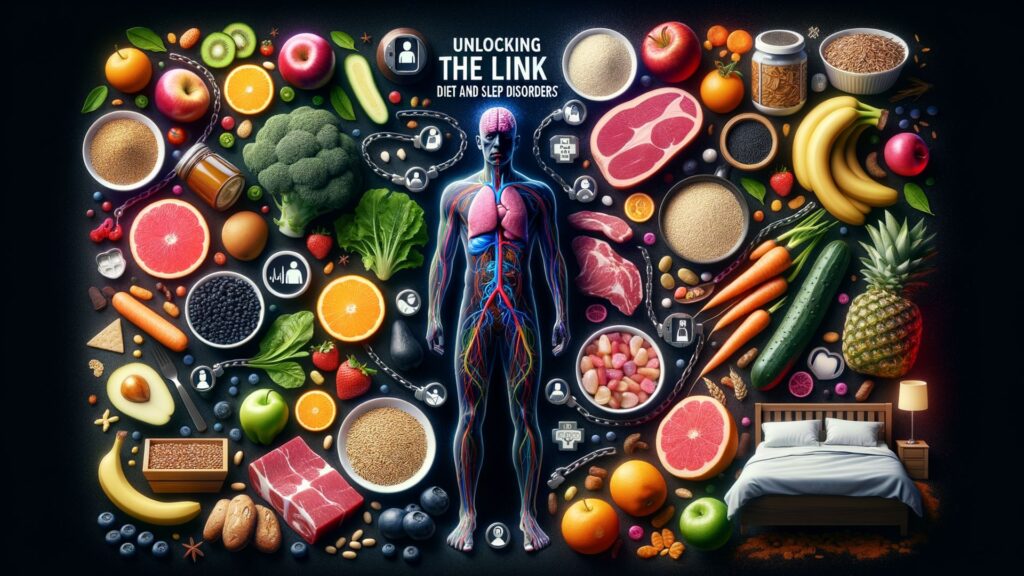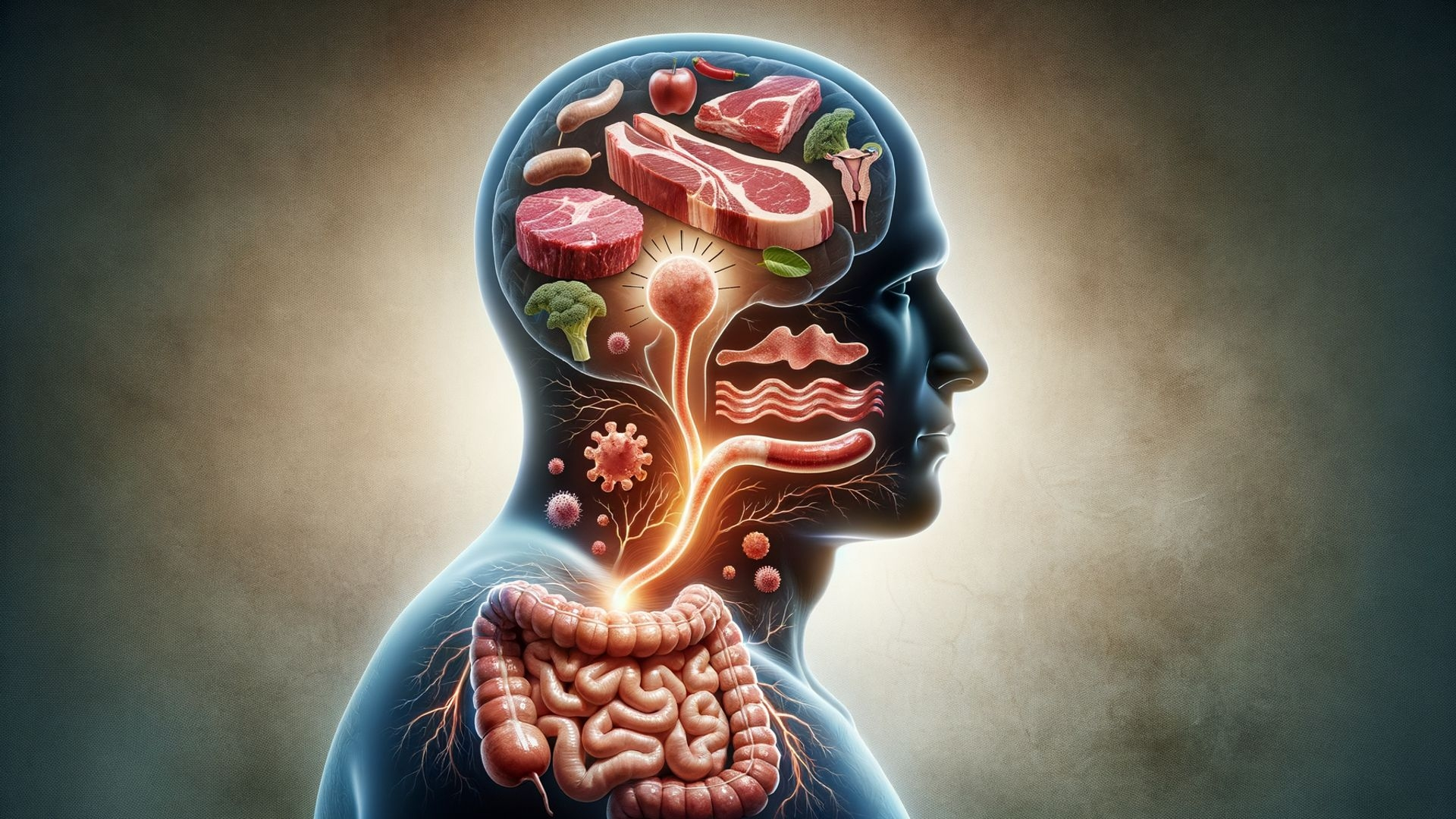Carnivore Diet: Unlocking Improved Sleep Quality and Health
Welcome to our comprehensive guide on how the carnivore diet can positively impact your sleep quality and overall health. In this article, we will explore the intriguing relationship between diet choices, particularly the carnivore diet, and the quality of your sleep.
By delving into various aspects such as protein intake, dietary fat, and the influence of specific diets like ketogenic and paleo on sleep patterns, we aim to uncover how dietary adjustments can lead to better sleep. The carnivore diet, which consists of primarily animal products such as meat, fish, and eggs, has gained popularity in recent years for its potential health benefits. Advocates of this diet claim that it can improve digestion, energy levels, and overall well-being.
One key aspect of the carnivore diet that may impact sleep quality is its high protein content. Protein is an essential nutrient that plays a crucial role in building and repairing tissues, including those in the brain that influence sleep. Consuming adequate protein can help regulate hormones such as melatonin, which is responsible for regulating the sleep-wake cycle.
How does the Carnivore Diet Affect Sleep Quality?
When considering the impact of the carnivore diet on sleep quality, it is essential to explore its effects on common sleep issues such as insomnia and sleep disorders. Many individuals report improvements in their sleep patterns after transitioning to a carnivore diet, highlighting a potential link between this dietary approach and better sleep.
One of the main reasons why the carnivore diet may improve sleep quality is its impact on blood sugar levels and hormonal balance. By eliminating refined carbohydrates, sugars, and processed foods, the carnivore diet helps to stabilize blood sugar levels throughout the day, which can lead to more restful sleep at night.
Additionally, the high protein content of the carnivore diet can help regulate hormones such as ghrelin and leptin, which play a role in hunger and satiety, as well as sleep-wake cycles.
It is important to note that individual responses to the carnivore diet may vary, and some people may experience temporary disruptions in sleep patterns as their body adjusts to the new dietary regimen. However, for many individuals, the carnivore diet can be a beneficial tool for supporting overall health and improving sleep quality.
If you are considering adopting a carnivore diet to improve sleep, it is recommended to consult with a healthcare provider or nutritionist to ensure that you are meeting your body’s nutrient needs and making sustainable dietary choices.

Impact of Carnivore Diet on Insomnia
Individuals suffering from insomnia may find relief by following a carnivore diet. The elimination of certain food groups that can disrupt sleep, combined with the higher consumption of animal products, may contribute to improved sleep quality for those struggling with insomnia. One potential reason for this improved sleep quality is the high levels of nutrients found in animal products, such as iron, zinc, and B vitamins, which are essential for promoting healthy sleep patterns.
Additionally, the absence of processed foods and sugar in a carnivore diet may also help to regulate blood sugar levels, which can impact sleep quality.
Furthermore, some individuals may have sensitivities or allergies to certain foods that can cause inflammation in the body and disrupt sleep.
By eliminating these potentially problematic foods and focusing on a diet rich in animal products, individuals may experience reduced inflammation and better overall sleep.
It is important to note that everyone’s body is different, and what works for one person may not work for another. It is always best to consult with a healthcare professional before making any significant changes to your diet, especially if you have a medical condition or are taking medications that could be impacted by a carnivore diet.
Carnivore Diet’s Influence on Sleep Disorders
Furthermore, research suggests that the carnivore diet’s emphasis on protein and fat, paired with the exclusion of typical high-carb foods, could have a positive influence on various sleep disorders. By altering sleep patterns and promoting restorative sleep, this diet may provide individuals with relief from sleep disorders.
Specifically, the high protein content in the carnivore diet could lead to an increase in levels of serotonin and melatonin, which are essential for regulating sleep-wake cycles.
Additionally, the consumption of healthy fats, such as omega-3 fatty acids found in fatty fish, can improve overall brain function and promote relaxation, leading to improved sleep quality.
In contrast to high-carb diets that can cause spikes and crashes in blood sugar levels, the carnivore diet’s focus on protein and fat can help stabilize blood sugar levels throughout the night, preventing disruptions in sleep. This stable blood sugar control can also have a positive impact on conditions such as insomnia and sleep apnea.
It is important to note that more research is needed to fully understand the effects of the carnivore diet on sleep disorders. However, anecdotal evidence and early studies suggest that a diet high in protein and healthy fats, and low in carbohydrates, may offer potential benefits for those struggling with sleep issues. As always, it is advisable to consult with a healthcare provider before making any significant changes to your diet.
Overall, the carnivore diet’s focus on protein and fat, along with its restriction of foods that might hinder sleep, presents a promising avenue for enhancing sleep quality. By understanding the relationship between the carnivore diet and sleep patterns, individuals may discover a natural way to improve their sleep quality. The high protein content in the carnivore diet can help promote feelings of fullness and control blood sugar levels throughout the night, which can prevent disruptions in sleep.
Additionally, the healthy fats found in foods like grass-fed meats and fatty fish can support brain health and neurotransmitter function, which are essential for regulating the sleep-wake cycle.
Furthermore, by eliminating processed foods, sugar, and grains from the diet, individuals may experience reduced inflammation and improved gut health, which can also contribute to better sleep. Inflammation and digestive issues have been linked to sleep disturbances, so by following a diet that supports overall health, individuals may see improvements in their sleep quality as well.
It is important to note that individual responses to the carnivore diet may vary, and some people may not experience improvements in their sleep quality. It is always recommended to consult with a healthcare provider before making significant changes to your diet, especially if you have underlying health conditions or concerns.
nd Paleo Diets and Sleep?
Effects of Ketogenic Diet on Sleep
The ketogenic diet, known for its emphasis on high-fat and low-carb foods, may impact sleep quality positively for some individuals. By promoting better energy levels and potentially altering sleep patterns, this diet could offer benefits for those looking to enhance their sleep quality.
One way the ketogenic diet may improve sleep quality is by stabilizing blood sugar levels. When following a high-fat, low-carb diet, the body enters a state of ketosis, in which it burns fat for fuel instead of carbohydrates. This can help regulate blood sugar levels and prevent the spikes and crashes that can disrupt sleep.
Additionally, the ketogenic diet has been shown to reduce inflammation in the body, which can also improve sleep quality. Inflammation has been linked to sleep disorders such as insomnia and sleep apnea, so reducing inflammation through diet may lead to better sleep.
Furthermore, the ketogenic diet can also increase levels of the neurotransmitter GABA, which has a calming effect on the brain and may help promote relaxation and deeper sleep.
It’s important to note that the effects of the ketogenic diet on sleep quality can vary from person to person. Some individuals may find that they sleep better while following the diet, while others may experience disruptions to their sleep patterns.
As with any dietary change, it’s essential to listen to your body and make adjustments as needed to ensure you are getting the restful, quality sleep you need.
Paleo Diet’s Impact on Sleep Quality
In a similar vein, the paleo diet, which focuses on whole foods similar to those consumed by our ancestors, may have a positive influence on sleep quality. By emphasizing nutrient-dense foods and excluding processed items, the paleo diet could support better sleep patterns and overall well-being.
Furthermore, avoiding caffeine, alcohol, and added sugars, which are common culprits for disrupting sleep, can also help improve sleep quality. Instead, incorporating foods rich in magnesium, such as leafy greens, nuts, and seeds, can promote relaxation and aid in falling asleep easier.
Incorporating healthy fats, like those found in avocados, olive oil, and fatty fish, can also be beneficial for sleep as they help regulate hormones and neurotransmitters that influence sleep patterns.
Lastly, staying hydrated and eating a balanced diet with a variety of fruits, vegetables, and lean proteins can support overall health, including sleep. By nourishing the body with the nutrients it needs, individuals can promote better sleep and wake up feeling more refreshed and rejuvenated.
How Do Low-carb Diets Affect Sleep?
Low-carb diets, including the ketogenic and paleo diets, may play a role in enhancing sleep quality through their impact on energy levels and hormone regulation. By understanding how these diets affect sleep, individuals can make informed choices to promote better sleep. Low-carb diets help regulate blood sugar levels and insulin production, which can lead to more stable energy levels throughout the day. This can help individuals feel more alert during the day and more ready to rest at night.
Additionally, low-carb diets can promote weight loss and improve metabolic function, which can also contribute to better sleep quality.
The ketogenic diet, in particular, has been shown to increase the production of GABA, a neurotransmitter that promotes relaxation and sleep. By increasing GABA levels, the ketogenic diet may help individuals fall asleep faster and achieve deeper, more restful sleep.
The paleo diet, which focuses on whole foods and eliminates processed sugars and refined grains, can also lead to improved sleep quality by reducing inflammation in the body. Inflammation has been linked to sleep disorders such as insomnia and sleep apnea, so reducing inflammatory foods in the diet can have a positive impact on sleep.
It’s important to note that everyone’s body is different, and what works for one person may not work for another.
Can Dietary Protein Impact Sleep Quality?
The role of dietary protein in improving sleep quality is a crucial aspect to consider when exploring the connection between diet and sleep. By examining the influence of protein intake, particularly in terms of tryptophan content, on sleep duration and quality, we can better understand how dietary choices impact our rest.
Tryptophan is an essential amino acid that is a precursor to serotonin, a neurotransmitter that plays a key role in regulating sleep and mood. When we consume protein-rich foods that are high in tryptophan, such as turkey, chicken, fish, nuts, and seeds, our bodies can convert this amino acid into serotonin and eventually melatonin, the hormone that helps regulate our sleep-wake cycle.
Research has shown that increasing tryptophan intake through dietary sources can lead to improvements in sleep quality, including increased total sleep time, reduced time taken to fall asleep, and fewer wake episodes during the night. This is because tryptophan helps promote relaxation and calmness, which in turn can make it easier to drift off to sleep and stay asleep throughout the night.
In addition to tryptophan, the overall quality of protein consumed can also impact sleep quality. Consuming high-quality, lean proteins like poultry, fish, and plant-based sources can help provide a steady source of amino acids throughout the night, which may help stabilize blood sugar levels and prevent disruptions in sleep.
The Role of Protein in Improving Sleep Quality
Protein-rich foods contain essential amino acids that play a significant role in promoting restorative sleep. By incorporating adequate protein into your diet, you may enhance your sleep quality and overall well-being.
Some protein-rich foods that can help improve sleep include:
1. Turkey: Turkey is rich in tryptophan, an amino acid that is known to promote relaxation and induce sleep.
2. Dairy products: Dairy products like milk, yogurt, and cheese are good sources of both tryptophan and calcium, which can help regulate melatonin production, a hormone that regulates sleep.
3. Eggs: Eggs are a complete protein source, meaning they contain all the essential amino acids your body needs. They are also rich in B vitamins, which are important for optimizing sleep patterns.
4. Fish: Fish like salmon, tuna, and halibut are high in omega-3 fatty acids, which have been shown to improve sleep quality. They also contain vitamin D, which can help regulate circadian rhythms.
5. Nuts and seeds: Nuts and seeds like almonds, walnuts, chia seeds, and flaxseeds are excellent sources of protein and magnesium, which can help relax the muscles and promote better sleep.
6. Quinoa: Quinoa is a complete protein source and is high in magnesium, B vitamins, and fiber, all of which can help improve sleep quality.
By including these protein-rich foods in your diet, you can potentially enhance your sleep quality and overall health. It is important to also focus on having a balanced diet, staying hydrated, and maintaining a consistent sleep schedule to achieve optimal restorative sleep.
Relation Between Protein Intake and Insomnia
Research suggests that protein intake may have an impact on insomnia and sleep problems. By balancing your protein consumption and ensuring adequate tryptophan levels, you could potentially address sleep issues and improve your overall sleep quality.
Protein, specifically the amino acid tryptophan, plays a key role in the production of serotonin, a hormone and neurotransmitter that helps regulate sleep-wake cycles and promote relaxation. Tryptophan is a precursor to serotonin, meaning that it is necessary for the body to produce serotonin. Serotonin is then converted into melatonin, a hormone that helps control your sleep patterns.
A study published in the American Journal of Clinical Nutrition found that individuals who consumed a high-protein meal before bed experienced improvements in sleep quality, compared to those who consumed a low-protein meal. The researchers suggested that consuming protein before bed may increase tryptophan levels in the body, leading to improved sleep.
Another study published in the Journal of Clinical Sleep Medicine found that individuals with insomnia had lower levels of tryptophan in their blood compared to those without sleep problems. The researchers suggested that increasing tryptophan levels through dietary interventions could help alleviate insomnia symptoms.
To ensure adequate protein intake and tryptophan levels for better sleep, focus on incorporating sources of tryptophan-rich proteins into your diet, such as turkey, chicken, eggs, nuts, seeds, and tofu. Additionally, try to consume a balanced diet that includes a variety of protein sources throughout the day to support overall health and well-being.
How Tryptophan in Protein May Affect Sleep Duration and Quality
Tryptophan, an amino acid found in protein-rich foods, is known for its potential to enhance sleep duration and quality. By including tryptophan-containing foods in your diet, you may support better sleep patterns and enjoy improved rest.
Some foods rich in tryptophan include:
- Turkey
- Chicken
- Fish (such as salmon, halibut, tuna)
- Eggs
- Dairy products (such as milk, yogurt, cheese)
- Nuts and seeds (such as almonds, walnuts, sesame seeds)
- Legumes (such as beans, lentils, chickpeas)
- Tofu and soy products
Incorporating these foods into your meals and snacks throughout the day can help increase your tryptophan intake and promote better sleep. Additionally, combining tryptophan-rich foods with carbohydrates can enhance the absorption of tryptophan in the body, leading to increased levels of serotonin and melatonin, which are important for regulating sleep-wake cycles.
It is important to note that individual responses to tryptophan may vary, and it is always best to consult with a healthcare provider before making significant changes to your diet. Additionally, if you are experiencing chronic sleep issues, it is important to address underlying causes with the guidance of a healthcare professional.
Exploring the Connection Between Diet and Sleep Disorders
The influence of diet on sleep disorders, such as sleep apnea and insomnia, underscores the importance of making informed dietary choices for better sleep quality. By understanding how specific nutrients like melatonin and fatty acids affect sleep, individuals can explore ways to improve their sleep through dietary adjustments.
Melatonin is a hormone that is naturally produced by the body and plays a key role in regulating sleep-wake cycles. Foods rich in melatonin, such as cherries, grapes, and walnuts, can help promote better sleep by increasing the production of this hormone. Incorporating these foods into your diet can potentially aid in improving sleep quality and overall sleep patterns.
Additionally, fatty acids, particularly omega-3 fatty acids found in fatty fish like salmon and mackerel, have been shown to have a positive impact on sleep. These essential fatty acids help regulate neurotransmitters that are involved in sleep regulation, leading to improved sleep quality. Including sources of omega-3 fatty acids in your diet can potentially reduce symptoms of sleep disorders and promote better overall sleep.
On the other hand, certain dietary factors can negatively affect sleep quality. Consuming caffeine, alcohol, and large meals close to bedtime can disrupt sleep patterns and lead to insomnia. These substances can interfere with the body’s ability to properly relax and fall asleep, resulting in poor sleep quality.

Influence of Diet on Sleep Apnea
Dietary adjustments, including the inclusion of foods rich in melatonin and fatty acids, may have a positive impact on sleep apnea. By promoting better sleep patterns and enhancing overall sleep quality, certain dietary choices can help individuals manage sleep apnea more effectively.
Melatonin is a hormone that regulates sleep-wake cycles and is often used as a supplement to help with insomnia and other sleep disorders. Foods high in melatonin include cherries, grapes, oats, rice, and tomatoes. Incorporating these foods into your diet may help improve sleep quality and reduce the symptoms of sleep apnea.
In addition, omega-3 fatty acids have been found to have anti-inflammatory properties that can help reduce inflammation in the airways, which can be beneficial for individuals with sleep apnea. Sources of omega-3 fatty acids include fatty fish like salmon, mackerel, and sardines, as well as nuts and seeds like flaxseeds and walnuts.
It’s also important to maintain a healthy weight, as obesity is a common risk factor for sleep apnea. Eating a balanced diet that is rich in fruits, vegetables, whole grains, and lean protein sources can help support weight management and improve overall health.
Furthermore, avoiding caffeine, alcohol, and heavy meals close to bedtime can also improve sleep quality and reduce the severity of sleep apnea symptoms. These substances can disrupt sleep patterns and contribute to breathing difficulties during the night.
Understanding the Impact of Nutrition on Energy Levels and Sleep
Exploring how nutrition influences energy levels and sleep patterns sheds light on the interplay between diet, rest, and overall health. Understanding the role of dietary fat and amino acids in promoting restorative sleep can provide valuable insights into how different dietary approaches affect our sleep quality.
Consuming a diet high in unhealthy fats and sugars can lead to disruptions in the body’s natural sleep-wake cycle, known as the circadian rhythm. These foods can cause inflammation and lead to imbalances in neurotransmitters that impact sleep quality. On the other hand, incorporating healthy fats, such as omega-3 fatty acids found in fish and nuts, can help regulate levels of serotonin, a neurotransmitter that promotes relaxation and sleep.
Amino acids play a crucial role in the production of neurotransmitters that regulate sleep and energy levels. For example, tryptophan is an amino acid found in foods like turkey, chicken, and dairy products that is a precursor to serotonin, which promotes relaxation and sleep.
Eating foods rich in tryptophan can help improve sleep quality and duration.
Additionally, consuming balanced meals that include a combination of carbohydrates, proteins, and fats can help stabilize blood sugar levels throughout the day, preventing energy crashes and promoting a restful night’s sleep. Avoiding large, heavy meals close to bedtime and limiting caffeine and alcohol intake can also improve sleep quality.
Role of Dietary Fat in Restorative Sleep
Dietary fats play a crucial role in supporting restorative sleep by providing essential nutrients for brain function and hormone production. By including healthy fats in your diet, you can contribute to better sleep quality and overall well-being. Consuming omega-3 fatty acids, found in foods such as salmon, walnuts, and flaxseeds, can help regulate neurotransmitters in the brain that are involved in sleep. Additionally, monounsaturated fats from foods like avocados and olive oil can help stabilize blood sugar levels, reducing the risk of waking up during the night due to fluctuating blood sugar.
It is important to avoid consuming too many unhealthy fats, such as trans fats found in processed foods, as they can have a negative impact on sleep quality. Instead, focus on incorporating a variety of healthy fats into your diet to support restful sleep and overall health.
In addition to dietary fats, it is also important to maintain a balanced diet overall, stay hydrated, and practice good sleep hygiene habits such as keeping a consistent sleep schedule and creating a relaxing bedtime routine. By taking care of your body and consuming a nutritious diet, you can support restorative sleep and wake up feeling refreshed and rejuvenated.
How Amino Acids in Diet Influence Sleep Patterns
Amino acids found in our diet, such as tryptophan, can influence sleep patterns and duration. By consuming a diet rich in amino acids, you may support healthy sleep cycles and improve your overall sleep quality. Research has shown that tryptophan, an essential amino acid found in foods such as turkey, chicken, eggs, nuts, and seeds, can help increase serotonin levels in the brain. Serotonin is a neurotransmitter that plays a key role in regulating mood and sleep.
When consumed as part of a balanced diet, tryptophan can help promote relaxation and reduce the time it takes to fall asleep. In addition, tryptophan can also help improve sleep quality by supporting the production of melatonin, a hormone that regulates the sleep-wake cycle.
It is important to note that consuming tryptophan alone may not be enough to improve sleep quality. Maintaining a balanced diet rich in a variety of amino acids, vitamins, and minerals is essential for overall health and well-being. Additionally, practicing good sleep hygiene habits such as establishing a regular bedtime routine, avoiding screens before bed, and creating a comfortable sleep environment can also help support healthy sleep patterns.
Does a Carnivore Diet Enhance Energy Levels for Better Sleep?
Some individuals find that a carnivore diet, rich in animal products and low in carbohydrates, enhances their energy levels and promotes better sleep. By exploring the potential benefits of a carnivore diet on energy and sleep quality, you may discover a dietary approach that works well for you.
Some potential benefits of a carnivore diet that could contribute to improved energy and sleep quality include:
1. High-quality protein: Animal products are rich in high-quality protein, which can help increase feelings of fullness and regulate hunger levels throughout the day. Protein also plays a crucial role in muscle repair and growth, which can lead to improved energy levels and better overall health.
2. Nutrient-dense foods: Animal products are packed with essential nutrients such as iron, zinc, B vitamins, and omega-3 fatty acids, which are important for maintaining energy levels and overall well-being. A diet rich in nutrient-dense foods can help support optimal energy production and metabolism.
3. Stable blood sugar levels: By reducing carbohydrates and focusing on animal products, you may be able to stabilize your blood sugar levels and prevent energy crashes throughout the day. Stable blood sugar levels can also promote better sleep quality, as fluctuations in blood sugar can disrupt the body’s natural sleep-wake cycle.
4. Improved digestion: Some individuals find that a carnivore diet can help alleviate digestive issues such as bloating, gas, and indigestion, which can interfere with energy levels and sleep quality. By eliminating potentially irritating foods and focusing on easily digestible animal products, you may experience improved digestion and better overall health.
5. Reduced inflammation: Animal products are typically low in inflammatory compounds, which can help reduce inflammation in the body and promote better energy levels and sleep quality. Chronic inflammation has been linked to numerous health issues, including fatigue and sleep disturbances, so reducing inflammation through a carnivore diet may lead to improved overall well-being.
While a carnivore diet may offer some potential benefits for energy and sleep quality, it’s important to consult with a healthcare provider or registered dietitian before making significant changes to your diet. Everyone’s nutritional needs are different, and a professional can help you determine the best approach for your individual health goals and requirements.
Carnivore Diet and Sleep Frequently Asked Questions:
What is the Carnivore Diet?
The Carnivore Diet is a dietary approach that involves consuming only animal products, such as meat, fish, and eggs, while excluding all plant-based foods.
Can the Carnivore Diet improve sleep quality?
Some individuals claim that following the Carnivore Diet may lead to improved sleep quality, potentially due to the elimination of certain foods that could affect sleep patterns.
How does the Carnivore Diet affect sleep compared to a typical diet?
The Carnivore Diet differs from a typical diet, such as the Mediterranean or high-protein diet, as it eliminates plant-based foods and focuses solely on animal products. This unique approach may have varying effects on sleep quality for different individuals.
Are there any potential risks to sleep associated with the Carnivore Diet?
While some proponents of the Carnivore Diet claim it can promote sleep, eliminating certain food groups like carbohydrates could potentially impact sleep patterns negatively for some individuals.
Can the Carnivore Diet help with sleep issues like insomnia or obstructive sleep apnea?
There is limited research on the specific effects of the Carnivore Diet on conditions like insomnia and obstructive sleep apnea. It is advisable to consult with a healthcare professional before making significant dietary changes to address sleep disorders.
Does red and processed meat in the Carnivore Diet have any impact on sleep quality?
The consumption of red and processed meat as part of the Carnivore Diet may have varying effects on sleep quality, as individual responses to diet can differ. The levels of saturated fats and other components in these meats could potentially influence sleep patterns.
How does the Carnivore Diet relate to slow-wave sleep and subjective sleep quality?
While some individuals on a Carnivore Diet report positive effects on sleep, such as improved slow-wave sleep or subjective sleep quality, it is essential to consider individual variations in response to this dietary approach.






